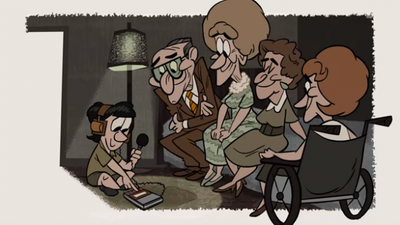When Andrew Youn was almost done with business school in 2005, he took a vacation to Kenya. It was the Minnesota native's first exposure to daily life in rural Africa.
"The shocking thing ... is that most of the world's hungry people are actually farmers and their profession is to grow food. And the reason they're not succeeding right now is they're still using tools and techniques that literally date to the Bronze Age, " he said.
Youn decided to apply his new business skills to see if he could help. He began with a project to assist 40 families.
"I took $7,000 of my own savings and bought seed and fertilizer and hired some local staff. And we gave it a shot," he said.
The rest as they say -- is history.
According to Youn, families became interested and signed up. They had the best harvest of their entire lives in that first season. And right when that happened, he said he knew that there was something there.
Youn's project turned into One Acre Fund, named after the small size of most African farms. Six years later, a staff of more than 800 serves over 125,000 farm families in Kenya, Rwanda and Burundi.
One Acre Fund isn't a typical humanitarian service. It offers a business model. One Acre gives the smallest of farmers the same services available to the biggest of businesses, credit, seed, insurance and access to markets. One Acre Fund also offers training, how to space plants, when to apply fertilizer and how much.
According to reports, this approach is showing results. On average, farmers enrolled in One Acre Fund have seen their crop yields triple.
Youn predicts One Acre Fund will exceed its goal to serve 1.5 million farm families by 2020.
Quotes
"The shocking thing and kind of an amazing paradox is that most of the world's hungry people are actually farmers and their profession is to grow food," - Andrew Youn, founder, One Acre Fund.
Warm Up Questions
1. Name three countries that are located in East Africa.
2. What do you know about this area of the world?
3. What is a harvest?
Discussion Questions
1. In the story, Andrew Youn, founder of One Acre Fund, said one of the reasons that these farmers are not succeeding is that " they're still using tools and techniques that literally date to the Bronze Age."
What is the Bronze Age and what connection is he trying to make?
2. What is a humanitarian service? How does One Acre Fund differ from other humanitarian services? Sight examples from the story.
3. If you had enough money in your savings account to start a humanitarian organization, what would your idea be? Discuss.
Additional Resources
Drought and Famine Plague Horn of Africa
Lesson plan: A County Recovering From Crisis -- Kenya


